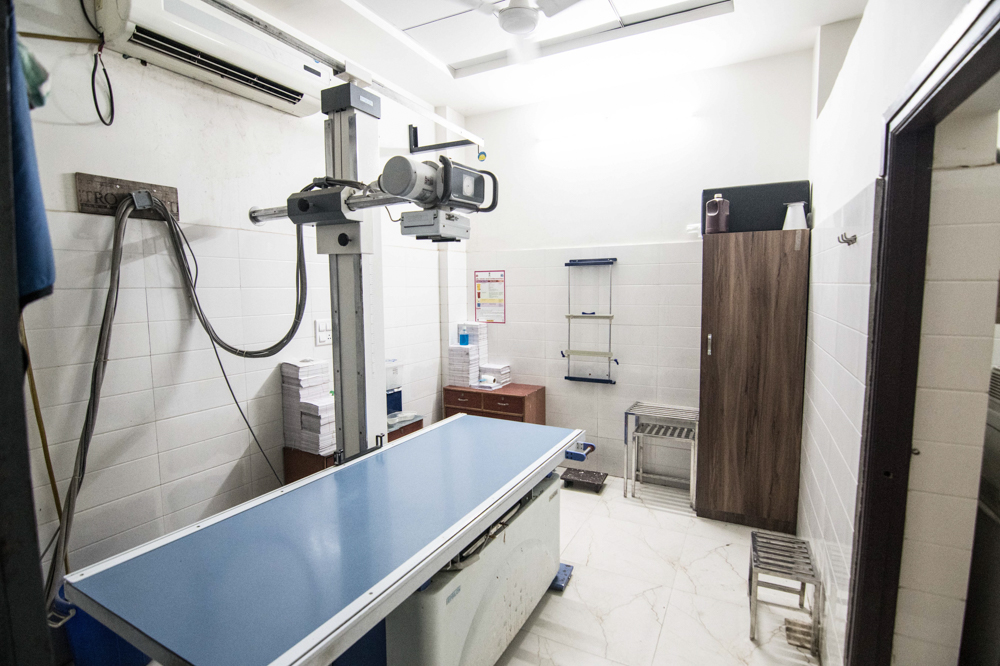Have you ever found yourself staring at a medical test report, feeling like you’re decoding an alien language? You’re not alone. Many of us leave the doctor’s office clutching a piece of paper filled with mysterious numbers and unfamiliar terms, wondering what it all means for our health.
Enter the world of pathology labs – the unsung heroes of medical diagnostics. In Kota, these labs are at the forefront of unraveling the complexities of our bodies, providing crucial insights that guide our healthcare decisions. But what really happens behind those lab doors? And more importantly, how can understanding these tests empower you to take control of your health journey?
In this ultimate guide, we’ll pull back the curtain on the fascinating world of pathology testing. From demystifying common tests to exploring cutting-edge diagnostics, we’ll equip you with the knowledge to navigate your test results with confidence. So, whether you’re a health enthusiast or simply curious about what’s happening in your body, buckle up as we embark on an enlightening journey through the pathology lab in Kota.
Explaining Pathology Tests
Common types of tests explained
Pathology tests are crucial diagnostic tools used by healthcare professionals. Let’s explore some of the most common types of tests you might encounter at a pathology lab in Kota:
- Complete Blood Count (CBC)
- Lipid Profile
- Liver Function Tests (LFTs)
- Thyroid Function Tests
- Urinalysis
| Test Type | Purpose | Key Components |
| CBC | Assess overall health | Red blood cells, white blood cells, platelets |
| Lipid Profile | Evaluate cardiovascular risk | Cholesterol, triglycerides, HDL, LDL |
| LFTs | Check liver health | ALT, AST, ALP, bilirubin |
| Thyroid Function | Assess thyroid activity | |
| Urinalysis | Screen for various conditions |
How to prepare for different tests
Proper preparation is essential for accurate test results. Here are some general guidelines:
- Fasting: Many tests require 8-12 hours of fasting before the blood draw.
- Medication: Consult your doctor about any medications you’re taking.
- Hydration: Stay well-hydrated unless instructed otherwise.
- Time of day: Some tests are best performed at specific times.
Why doctors order specific tests
Doctors order specific tests for various reasons:
- Routine health screenings
- Diagnosis of suspected conditions
- Monitoring existing health issues
- Assessing treatment effectiveness
- Pre-operative evaluations
Understanding the purpose behind your tests can help you better prepare and interpret the results. If you’re unsure about a test ordered by your doctor, don’t hesitate to ask for clarification at the pathology lab in Kota.
Now that we’ve demystified pathology tests, let’s take a closer look at what goes on inside the pathology lab.
Inside the Pathology Lab
At the heart of every diagnostic process lies the pathology lab, a crucial component in healthcare that often remains unseen by patients. Let’s take a closer look at what happens behind the scenes in a state-of-the-art pathology lab in Kota.
Turnaround Times for Results
Efficiency is key in pathology, and the lab in Kota prides itself on quick turnaround times without compromising accuracy. Here’s a breakdown of typical result times:
| Test Type | Turnaround Time |
| Routine Blood Tests | 4-6 hours |
| Urine Analysis | 2-4 hours |
| Cultures | 48-72 hours |
| Specialized Tests | 3-5 days |
Quality Control Measures
To ensure the highest standards of accuracy and reliability, the pathology lab implements rigorous quality control measures:
- Regular calibration of equipment
- Blind sample testing
- Participation in external quality assessment programs
- Continuous staff training and development
The Journey of Your Sample
Understanding the path your sample takes can demystify the testing process:
- Collection: Samples are carefully collected and labeled.
- Transportation: Samples are securely transported to the lab under controlled conditions.
- Processing: Samples are prepared for analysis through various methods like centrifugation or staining.
- Analysis: State-of-the-art equipment analyzes the samples.
- Verification: Results undergo thorough checks by qualified pathologists.
- Reporting: Finalized results are sent to your healthcare provider.
With this insight into the inner workings of a pathology lab, you can appreciate the complex process behind your test results. Next, we’ll explore how to interpret these results effectively.
Interpreting Your Test Results
Now that we’ve explored the inner workings of a pathology lab, let’s delve into the crucial task of interpreting your test results. Understanding these results is key to taking control of your health and making informed decisions.
The Importance of trending results over time
Tracking your test results over time can provide valuable insights into your health. A single test result is like a snapshot, while multiple results create a more comprehensive picture. Consider the following benefits of trending:
- Early detection of health changes
- Monitoring the effectiveness of treatments
- Identifying patterns in your health
When to seek further medical advice
While interpreting results is important, knowing when to consult a healthcare professional is crucial. Here are some situations that warrant further medical advice:
- Significant deviations from previous results
- Results outside the reference range
- Persistent abnormal results
- Unexplained symptoms alongside test results
What abnormal results might indicate
Abnormal test results can be indicative of various health conditions. Here’s a quick reference table for some common abnormalities:
| Test Type | Abnormal Result | Possible Indication |
| Complete Blood Count | Low red blood cell count | Anemia |
| Lipid Panel | High LDL cholesterol | Increased risk of heart disease |
| Thyroid Function | Elevated TSH | Hypothyroidism |
| Liver Function | Elevated ALT and AST | Liver damage or disease |
Understanding reference ranges
Reference ranges are crucial in interpreting your test results. They represent the range of values considered normal for a healthy population. However, it’s important to note:
- Reference ranges can vary based on factors like age, gender, and ethnicity
- Some individuals may have ‘normal’ values outside the reference range
- The pathology lab in Kota uses up-to-date reference ranges for accurate interpretations
Understanding these aspects of test result interpretation empowers you to have more meaningful discussions with your healthcare provider and take proactive steps towards better health. In the next section, we’ll explore the specialized tests available at Kota’s pathology lab.
Maximizing the Value of Your Tests
Now that we’ve explored the various tests available at Kota’s pathology lab, let’s focus on how to get the most out of your test results. By understanding test limitations, following up on results, maintaining a personal health record, and asking the right questions, you can make informed decisions about your health.
A. Understanding test limitations
While pathology tests are invaluable diagnostic tools, it’s crucial to recognize their limitations:
- False positives and negatives
- Variability in test results
- Influence of external factors
| Limitation | Description | Impact |
| False positives | Test incorrectly indicates presence of a condition | May lead to unnecessary worry or treatment |
| False negatives | Test fails to detect an existing condition | May delay necessary treatment |
| Result variability | Results can vary due to factors like time of day or recent meals | May affect interpretation of results |
B. Following up on results
After receiving your test results from the pathology lab in Kota, it’s essential to:
- Schedule a follow-up appointment with your doctor
- Discuss any abnormal results and their implications
- Determine if additional tests are necessary
- Create a plan for addressing any health concerns
C. Keeping a personal health record
Maintaining a comprehensive health record can provide valuable context for interpreting test results:
- Keep copies of all test results
- Track changes in results over time
- Note any symptoms or lifestyle changes that may affect results
- Use digital health apps or platforms for easy access and organization
D. Questions to ask your doctor
To fully understand your test results, consider asking your doctor:
- What do these results mean for my overall health?
- Are there any lifestyle changes I should make based on these results?
- How do these results compare to previous tests or normal ranges?
- Should I schedule any follow-up tests or appointments?
Home Testing Kits and Their Reliability
Home testing kits are becoming increasingly popular, offering convenience and privacy. However, their reliability varies:
| Test Type | Reliability | Pros | Cons |
| Pregnancy | High | Quick results, Easy to use | Limited information |
| Genetic | Varies | Comprehensive data, Privacy | Complex interpretation |
While these kits can be useful, it’s important to consult with healthcare professionals for accurate interpretation and follow-up.
Personalized Medicine and Genetic Profiling
Genetic profiling is paving the way for personalized medicine:
- Tailored treatment plans based on individual genetic makeup
- Prediction of disease susceptibility
- Optimization of drug efficacy and minimization of side effects
- Targeted therapies for cancer and other complex diseases
This approach allows pathology labs to provide more accurate and personalized healthcare recommendations.
Emerging Technologies in Diagnostics
Several cutting-edge technologies are set to transform diagnostic capabilities:
- Liquid biopsies for non-invasive cancer detection
- Nanotechnology for molecular-level diagnostics
- 3D printing of tissues for testing drug efficacy
- Quantum sensors for ultra-sensitive detection of biomarkers
These advancements will enable pathology labs to detect diseases earlier and with greater precision, ultimately improving patient outcomes.
As we move forward, these innovations will continue to shape the landscape of pathology testing, offering more accurate, personalized, and accessible healthcare solutions.
Understanding your pathology tests is crucial for taking control of your health. From basic blood work to specialized genetic screenings, the pathology lab in Kota and Diagnostic Centre in Kota offers a wide range of tests to help diagnose and monitor various conditions. By familiarizing yourself with the testing process, learning to interpret results, and knowing which tests are most relevant to your health concerns, you can make more informed decisions about your healthcare.
As medical technology advances, pathology testing continues to evolve, offering more precise and personalized insights into our health. Whether you’re managing a chronic condition or simply staying proactive about your well-being, regular communication with your healthcare provider and utilization of Kota’s state-of-the-art pathology lab can help you stay on top of your health. Remember, knowledge is power when it comes to your health – don’t hesitate to ask questions and seek clarity about your test results to make the most of these valuable medical tools.




